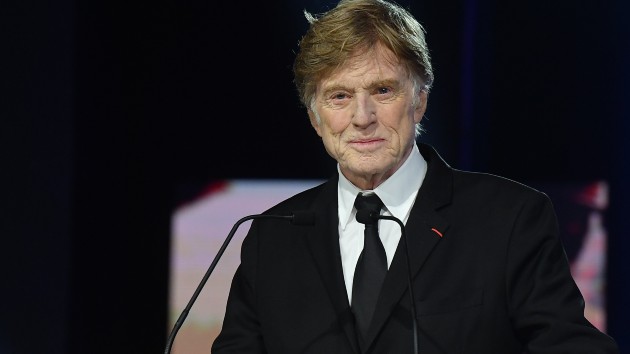

Robert Redford, the actor and Oscar-winning filmmaker who at his peak was simultaneously one of Hollywood's most critically lauded directors and bankable leading men, has died at age 89.
"Robert Redford passed away on September 16, 2025, at his home at Sundance in the mountains of Utah -- the place he loved, surrounded by those he loved. He will be missed greatly," his representative confirmed to ABC News. "The family requests privacy."
In a career that spanned more than six decades, Redford was known as much for his memorable performances in movie classics including Butch Cassidy and the Sundance Kid, Jeremiah Johnson, The Sting, The Way We Were, All the President's Men and The Natural, as he was as an Academy Award-winning filmmaker, directing critically acclaimed works like Ordinary People, A River Runs Through It and Quiz Show. Redford also co-founded the annual Sundance Film Festival, in support of independent filmmakers, and was an outspoken supporter of progressive politics, civil rights and environmentalism.
Charles Robert Redford Jr. was born Aug. 18, 1936, in Van Nuys, California. After graduating from high school, he attended the University of Colorado on a partial baseball scholarship, but left during his sophomore year to travel Europe for a time, where he studied painting. Returning to the U.S., he switched vocations, enrolling in the American Academy of Dramatic Arts in New York City to study acting, graduating in 1959.
Redford appeared in a number of popular TV shows in the early 1960s, including Perry Mason, The Untouchables, The Twilight Zone and many others. He made his film debut in an uncredited role the 1960 romantic comedy Tall Story, starring Anthony Perkins and Jane Fonda.
But Redford's big break came when he was cast opposite Elizabeth Ashley in the 1963 Broadway debut of the Neil Simon comedy Barefoot in the Park. The play was a hit and led to Redford appearing in more and larger film roles, including the 1965 drama Inside Daisy Clover, opposite Natalie Wood, which earned Redford a Golden Globe for new star of the year. His star rose further when, in 1967, he reprised his Broadway role on the big screen opposite Jane Fonda in the hit film adaptation of Barefoot in the Park.
What followed was a two-decade run of movies that were both commercial and, for the most part, critical successes, and which cemented Redford's reputation as an A-list box office draw. He starred opposite Paul Newman in the 1969 Western action-comedy Butch Cassidy and the Sundance Kid, the year's top-grossing film. That success led to Redford and Newman re-teaming as Chicago con men for the 1973 Depression-era comedy The Sting, which earned Redford an Academy Award nomination for best actor.
The hits kept coming, among them the 1972 political satire The Candidate and the existential Western drama Jeremiah Johnson. The decade's zenith arguably came with the 1976 Watergate-inspired drama All the President's Men, in which he and Dustin Hoffman played real-life Washington Post reporters Bob Woodward and Carl Bernstein, respectively. The film, based on their best-selling book of the same name, told the story of their investigation into the Watergate scandal and White House cover-up.
Redford wrapped the 1970s with the romantic comedy The Electric Horseman, his third film partnership with Jane Fonda. His directorial debut came with the 1980 drama Ordinary People. The film, starring Donald Sutherland, Mary Tyler Moore and Timothy Hutton, won six Oscars, including best picture and best director for Redford.
Redford directed nine feature films in all, but his most successful effort following Ordinary People was 1994's Quiz Show, based on the 1950s scandal surrounding game fixing by producers of the TV quiz show Twenty-One. It earned Redford his second of two career best director Oscar nominations.
Redford also remained a constant presence in front of the camera from the 1980s onward, in such films as The Natural, Indecent Proposal, Captain America: The Winter Soldier and the Oscar-winning Out of Africa. In 2018, he announced his retirement from acting.
He co-founded the non-profit Sundance Institute in 1981, with the stated mission of "fostering new voices in American storytelling" by offering programs and grants to aspiring filmmakers. In 1985, it acquired the seven-year-old annual US Film Festival. Renamed the Sundance Film Festival, it remains the largest annual independent film showcase in America.
Redford remained politically active throughout his life, particularly when regarding issues that involved protection of the environment, Native American issues and civil rights, supporting both Republican and Democratic candidates for office over the decades. He also was a longtime trustee of the Natural Resources Defense Council and a vocal advocate for efforts to address anthropogenic climate change.
In addition to his 1980 best director Academy Award, Redford received an honorary Oscar in 2002 for his lifetime of work, as well as the Hollywood Foreign Press Association's Cecil B. DeMille Award in 1994 and the Screen Actors Guild Life Achievement Award in 1995.
President Bill Clinton presented Redford with the National Medal of the Arts in 1996. He was recognized by the Kennedy Center Honors in 2005, presented to artists for their "profound contributions" to American Culture. In 2016, President Barack Obama presented Redford with the Presidential Medal of Freedom, the nation's highest civilian honor.
Redford was married twice. His first union, to producer and activist Lola Van Wagenen, lasted 27 years and produced four children, one of whom died in infancy, before ending in divorce in 1985. In 2009, Redford married his longtime partner, artist Sibylle Szaggars. She survives him, as do his children.
Copyright © 2025, ABC Audio. All rights reserved.
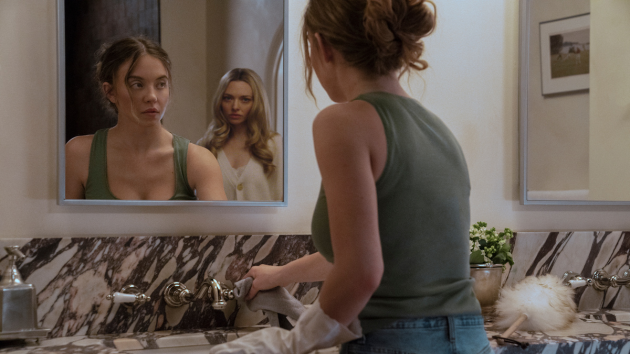 Sydney Sweeney, Amanda Seyfried star in 'The Housemaid' official trailer
Sydney Sweeney, Amanda Seyfried star in 'The Housemaid' official trailer
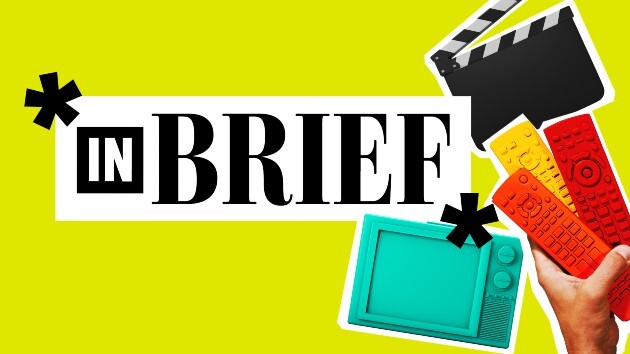 In brief: 'Smurfs' gets Paramount+ release date and more
In brief: 'Smurfs' gets Paramount+ release date and more
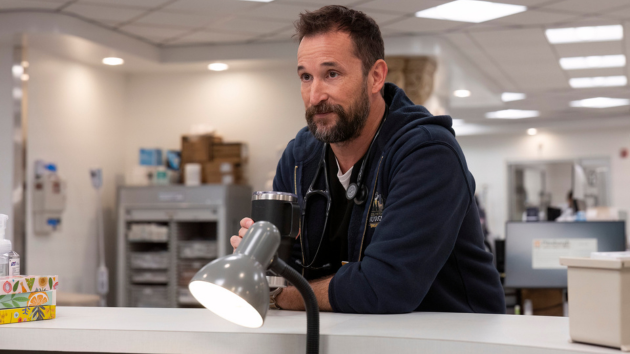 Emmy winner Noah Wyle says being part of 'The Pitt' 'feels analogous to when my son was born'
Emmy winner Noah Wyle says being part of 'The Pitt' 'feels analogous to when my son was born'
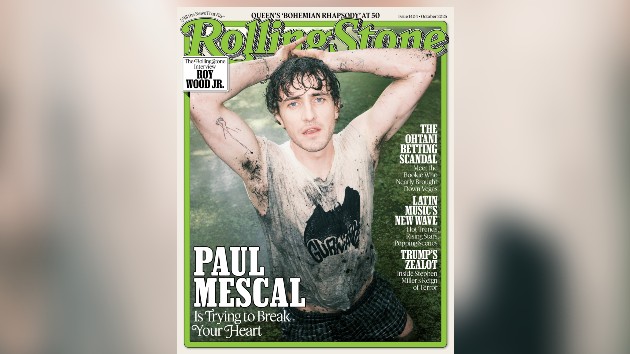 Actor Paul Mescal got to play 'Blackbird' with Paul McCartney: 'I will never forget it as long as I live'
Actor Paul Mescal got to play 'Blackbird' with Paul McCartney: 'I will never forget it as long as I live'
 'The White Lotus' season 4 will take place in France, HBO boss confirms
'The White Lotus' season 4 will take place in France, HBO boss confirms












